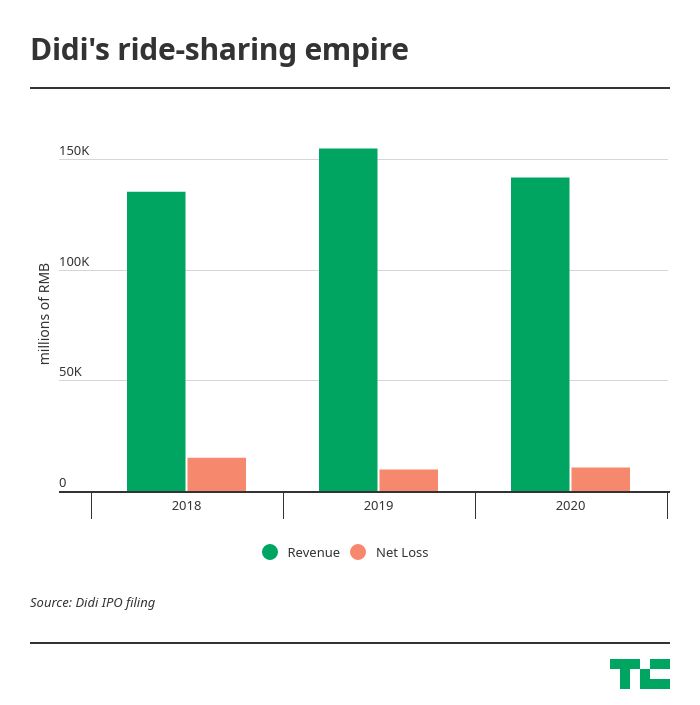After years of speculation, Didi Chuxing, China’s ride-sharing behemoth, finally unveiled its IPO filing for the U.S., giving a glimpse into its money-losing history.
Didi didn’t disclose the size of its raise. Reuters reported the company could raise around $10 billion at a valuation of close to $100 billion.
Cheng Wei, Didi’s 38-year-old founder owns 7% of the company’s shares and controls 15.4% of its voting power before the IPO, according to the prospectus. Major shareholder SoftBank Vision Fund owns 21.5% of the company, followed by Uber with 12.8% and Tencent at 6.8%.
The nine-year-old company, which famously acquired Uber’s China operations in 2016, is more than a ride-hailing platform now. It has a growing line of businesses like bike-sharing, grocery, intra-city freight, financial services for drivers, electric vehicles and Level 4 robotaxis, which it defines as “the pinnacle of our design for future mobility” for its potential to lower costs and improve safety.
Didi set up an autonomous driving subsidiary that banked $500 million from SoftBank in May last year. The unit now operates a team of over 500 members and a fleet of over 100 autonomous vehicles.
For the twelve months ended March, Didi served 493 million annual active users and saw 41 million transactions on a daily basis.
Didi had been operating in the red from 2018 to 2020, when it finished the year with a $1.6 billion net loss, but managed to turn the tide in the first quarter of 2021 by racking up a net profit of $837 million, which it recognized was primarily due to the investment income from the deconsolidation of Chengxin, its cash-burning grocery group buying initiative, and an equity investment disposal.
Revenue from the quarter also more than doubled year-over-year to $6.6 billion. China accounts for over 90% of Didi’s revenues as of late. The company has tried to expand its presence in a dozen overseas countries like Brazil, where it bought local ride-hailing business 99 Taxis.

Of its mobility revenues in China, more than 97% came from ride-hailing between 2018 and 2020. Taxi hailing, chauffeur and carpooling, a lucrative business that was revamped following two deadly accidents, made up a trifling share.
Didi plans to spend 30% of its IPO proceeds on shared mobility, electric vehicles, autonomous driving and other technologies. 30% will go towards its international expansion and another 20% will be used for new product development.
Can China’s ride-hailing leader Didi repair its troubled reputation?